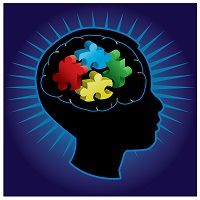Article
Autism May Stem from Brain Inflammation
Author(s):
Brain inflammation, researchers from Johns Hopkins believe, may be an identifiable trademark of autism spectrum disorder.

One hallmark of autism spectrum disorder is brain inflammation, according to research published in Nature Communications.
Researchers from Johns Hopkins and University of Alabama Birmingham conducted a large scale analysis of 104 brain samples from 72 individuals. This is the largest data set so far for a study of gene expression in autism, the researchers noted. The investigators hypothesized the gene expression of autism had not been studied to its fullest extent, and did not include enough data to reach thorough conclusions. Gene expression tests can be done on nearly any cell from the body, but for brain gene expression studies, the cells needed to come from autopsies.
The data came from 2 different tissue banks and the investigators compared the tissue from patients with and without autism spectrum disorder. The scientists believe their analysis can contribute to effective therapeutic approaches, as well an innovative method to eradicating autism spectrum disorder.
“There are many different ways of getting autism, but we found that they all have the same downstream effect,” Dan Arking, PhD, an associate professor in the McKusick-Nathans Institute for Genetic Medicine at the Johns Hopkins University School of Medicine, said in a press release. “What we don’t know is whether this immune response is making things better in the short term and worse in the long term.”
In prior studies, autism associated abnormalities in cells that support neurons in the brain and spinal cord had been identified. The investigators of this study were able to further identify a microglial cell, which supervises the brain for pathogens and other threats. The microglial cells appeared to be perpetually activated and their inflammation responses were activated in autism spectrum disorder brains.
“This type of inflammation is not well understood, but it highlights the lack of current understanding about how innate immunity controls neural circuits,” said Andrew West, PhD, an associate professor of neurology at the University of Alabama at Birmingham who was involved in the study.
The researchers acknowledged that autism spectrum disorder is a direct cause of the inflammation; however, they plan to determine whether treating the inflammation in the brain would eliminate symptoms of autism.




